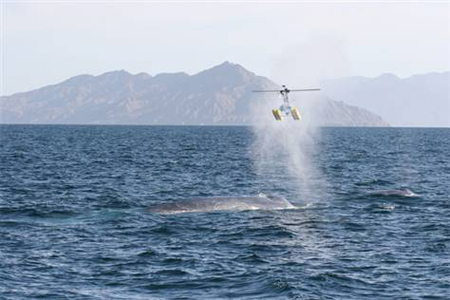10 IgNobel prizes for silly inventions
Reduce the risk of falling by putting on the outside of shoes; Using helicopters to get whales is Ig Nobel research awarded in 2010.

Two Dutch researchers found that people with asthma should often ride on high-speed sleds if they want to cure them. Photo: sabotagetimes.com .
Ig Nobel is an award awarded annually by Annals of Improbable Research for inventions and achievements " first to make people laugh, then make them think ". This year's Ig Nobel awards ceremony was held at Harvard University's Sander Theater, USA on the evening of September 30.
According to Livescience, organizers selected 10 Ig Nobel prizes among nearly 7,000 nominations. Winners - from New Zealand, Japan, Mexico, the Netherlands, China, the United States, the UK - take care of themselves to go to Harvard University.
Fox News said the two Dutch scientists were awarded the Ig Nobel prize in medicine because they discovered that asthma symptoms can be treated by sitting on a high-speed sled. The method of taking whale fish with remote control helicopters received mechanical prizes.
' These awards are given to scientific studies that make people laugh, but they can lead to very practical applications, ' Gareth Jones, Bristol University biology professor, told Fox News.
Jones and some Chinese scientists won the Nobel Prize for recording the oral sex behavior of fruit bats.

Helicopters are remotely controlled above whales to get drool in the droplets of water they spew out while breathing. This method won the Ig Nobel Prize 2010 for mechanical engineering. Photo: British Animal Association.
Many people believe that when people are in pain, they should curse because that behavior makes pain feel less, but no one can provide scientific evidence for that phenomenon. Richard Stephens, a psychologist at Keele University in the UK, is the first to prove that swearing actually helps reduce pain by experiment. Thanks to that, he received the Ig Nobel Peace Prize.
Some scientific findings can be applied very easily to life, but most of us dare not follow them because they are too weird. For example, three scientists at the University of Otago in New Zealand prove that the number of slips and falls on ice and snow will decrease if people slip on their shoes.
- The world's most silly inventions
- 15 extremely strange inventions but worth the Nobel prize
- Good candidate for the IgNobel 2014 prize
- 'Navel laughter' with the most silly inventions on the earth 2017
- The inventions awarded Nobel prizes change the world medicine
- Use ingredients in toys to improve li-ion batteries
- Video: Proper urination technique for men
- Silly String sprays and secrets in plastic foam
- 15 quirky inventions but the idea is quite interesting
- Аndrei Geim - From graphene, temporarily not making money (P1)
- 'Silly' actions that people still do every day
- After tens of years, NASA finally revealed its 'secret' inventions
 Vietnam 5th Asian champion on fuel-efficient vehicles
Vietnam 5th Asian champion on fuel-efficient vehicles We can read all NASA studies completely free of charge
We can read all NASA studies completely free of charge Singer and songwriter Bob Dylan won the 2016 Nobel Prize for Literature
Singer and songwriter Bob Dylan won the 2016 Nobel Prize for Literature Scientific revolution in Asia
Scientific revolution in Asia